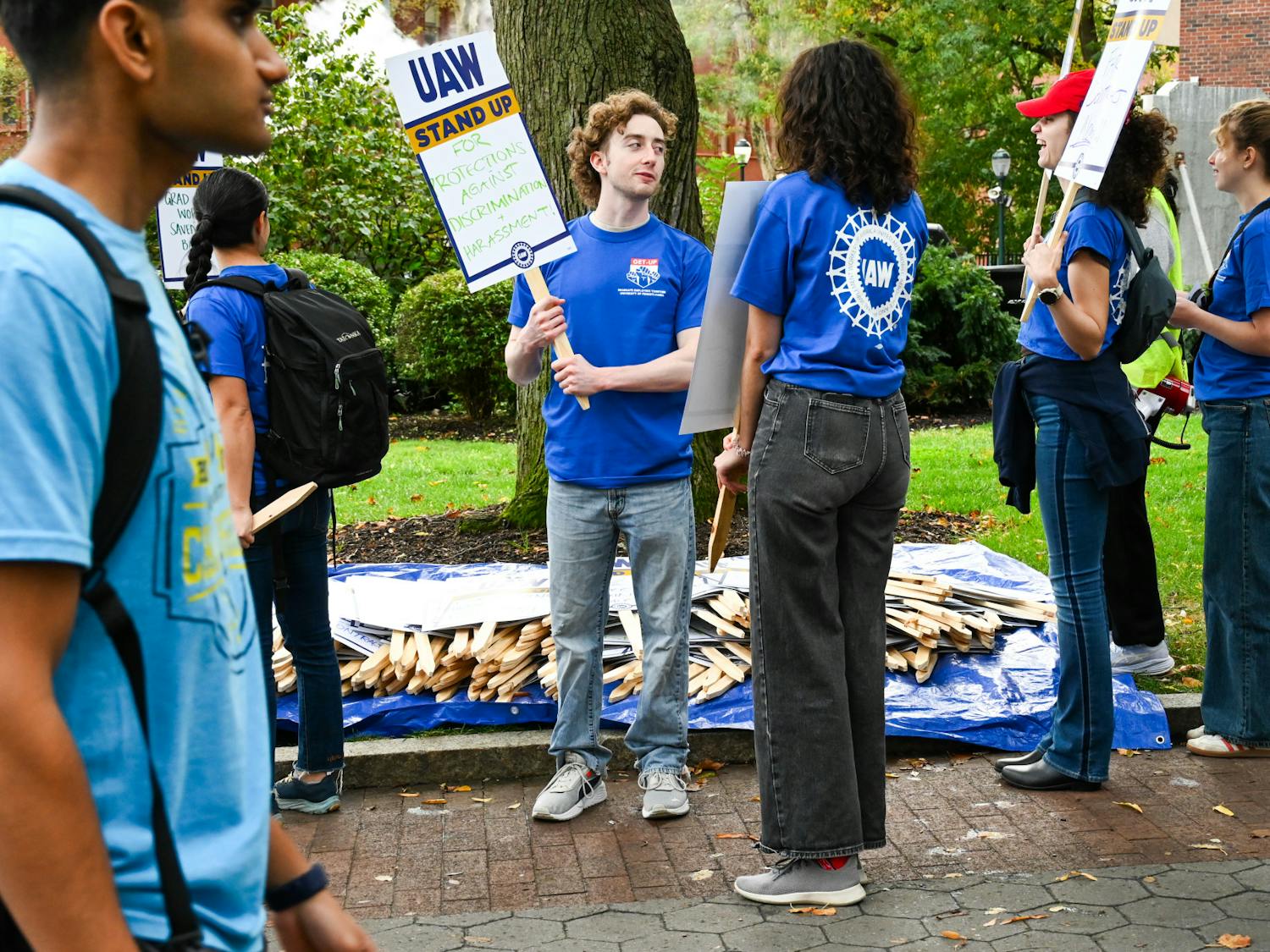Despite record-setting numbers of Penn students rushing to get COVID-19 tests ahead of Thanksgiving break, most test results have been returned within 24 to 72 hours, according to Chief Operating Officer for Wellness Services Erika Gross.
From Nov. 15 to Nov. 21, the University conducted 6,499 tests — over 1,000 more than any week prior — with the total positivity rate reported at 1.54%, slightly above the 1.29% average for the semester. Chief Wellness Officer Benoit Dubé attributed the surge in testing to the upcoming break and related travel.
All test results from Monday, which saw a total of 1,500 administered tests, were posted within the 24 to 48 hour window or less, Gross said. She added that this time period should be the expectation for all students moving forward.
Early Friday evening, the University's COVID-19 Twitter account posted that test results may take up to 72 hours as opposed to the normal 24 to 48 hour time window due to a recent surge in the number of students seeking tests. Gross said while the majority of tests results were posted within 48 hours, the message was posted to make sure that students who did not receive a result within the normal turnaround period did not panic.
Dubé said many students who showed up for testing at Houston Hall did not schedule an appointment online or enroll in weekly surveillance testing, contributing to some test result delays. More than 67% of tested students last week did not schedule an appointment, he said.
"A lot of these students were unknown to us from a screening program perspective," Dubé said. "We had not forecast all these students [looking to be tested] last week. There's only so many labs that we can run at the same time from as the health system which also led to these delays."

In anticipation for the reopening of on-campus housing for the spring semester, Dubé said Penn will transition from nasal tests to saliva tests and require undergraduate students to test twice a week and graduate students once a week.
Dubé said the saliva testing pilot program has been a success and added that Penn will begin administering the saliva tests to all students who come to the Houston Hall testing site beginning in December in preparation for students' return to campus in January.
Penn will also open eight additional testing sites throughout campus, including Irvine Auditorium, which opened on Tuesday morning for students with a red PennOpen Pass. A student with a red PennOpen Pass is either symptomatic or may have come into contact with someone with symptoms. Houston Hall will only test non-symptomatic students with a green PennOpen Pass, while Irvine will only test students with a red PennOpen Pass for the remainder of the fall semester and throughout the spring semester.
The locations of the other seven sites will be finalized in December, with at least one of them being outdoors under a tent, Dubé said. The outdoor testing site will open in December for seven to 10 days, so Penn can pilot the operation of multiple testing sites simultaneously on a smaller scale, he said.
Both Dubé and Director of Campus Health Ashlee Halbritter said the University is confident that its testing strategy and capacity for the spring will be robust enough to ensure a healthy and safe experience for students who return to campus.
Halbritter added that even with the substantial testing system in place for the spring, students are responsible for following social distancing guidelines to help prevent the spread of COVID-19.
"We have done our part to keep Penn as healthy and safe as possible and to set Penn up for success to open in the spring, but we will fail if students continue to not do the behaviors they are in control of: wearing masks, physical distancing, and washing their hands," Halbritter said.
Despite the University's confidence in its COVID-19 testing capabilities, Dubé acknowledged that the COVID-19 pandemic is unpredictable and that some decisions including those made by the Philadelphia Department of Public Health and the Centers for Disease Control and Prevention could hamper Penn's plans to reopen campus if cases continue to rise.









